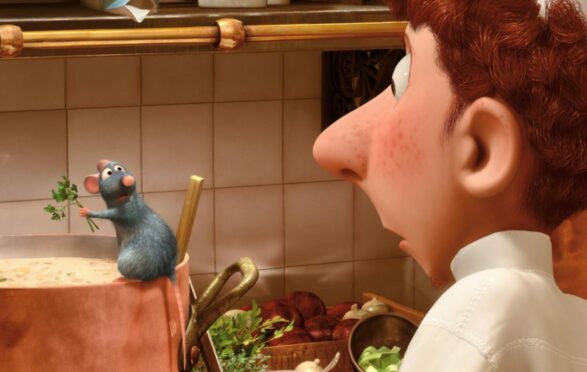
Charles de Gaulle, France’s wartime leader and founder and first president of the current 5th Republic, famously said his countrymen were largely ungovernable because of their widely differing tastes in cheese.
Le General, as he was invariably called, said there were 246 varieties – from Brie to Valencay – and that someone’s choice said everything about their political inclinations.
Like a slab of Edam (Dutch as it happens), there are numerous holes in this argument. What’s to stop someone enjoying lots of different types of cheese, for example?
But the culinary focus was certainly appropriate for a nation obsessed by culinary arts, and de Gaulle’s claims have taken on added significance in Paris right now as dining once more becomes a political hot potato.
With fast-approaching presidential and parliamentary elections set to decide who governs the country for the next five years – they are being held in April and June respectively – there is once again a fierce debate about eating habits.
It began earlier this month when Fabien Roussel, who is standing to become France’s first Communist Party president, used a parliamentary debate to define French gastronomy as “good wine, good meat, good cheese”.
Roussel is a passionate left-winger who said such products should be made available to all, in a bid to defend French culture.
This sounds reasonable enough, especially if you are describing a cartoonish France full of overweight onion sellers in dark blue berets and stripy tops.
La France Profonde – or Deep France – is a mythical place populated by such characters and it makes nationalists of both left and right extremely happy.
The concept evokes a predominantly rural nation that grows and sells its own fruit and vegetables, meaning everybody can feel truly French.
Except that the world has changed rapidly over the past few years, and anybody who goes on too much about the staples – wine, meat and cheese – can be accused of sounding like a small-town xenophobe.
Sandrine Rousseau, a Green Party MP, attacked such reactionary provincialism, saying: “Today the French eat Italian pizzas, Japanese sushi and couscous from North Africa.”
She said that the millions of citizens who could trace their roots back to Africa were far more likely to eat exotic meals, and plenty of others followed their example.
Rousseau also told a parliamentary debate that – for health reasons – a lot of people did not drink alcohol, or touch red meat.
Sergio Coronado, another Green politician, concurred, saying: “I don’t drink. I’m a vegetarian. I hope I am not anti-France.”
The key point is that if French identity was not as multi-faceted as de Gaulle made out with his cheese analogy before his death in 1970, then it certainly is now.
France is now a nation of immigrants, and millions of citizens feel stigmatised by the idea that this is not being recognised.
“We serve couscous and tagines because that is what our customers want,” said Mohammed Bennani, a Paris bistro owner who voted for Emmanuel Macron at the last presidential election, in 2017.
“There is certainly a move to the right by all politicians, including Macron, and one of the ways they are trying to win votes is by attacking foreign customs – including foreign food. It’s a horrible tactic, and one that will cost those who use it votes. Of course, there will always be a place for traditional dishes but modern France is changing and people need to adapt.”
French Muslims and Jews are among those who regularly complain about attacks on them for insisting on very specific types of animal slaughter.
France is a secular republic that tries to keep religion out of public life, ensuring that Halal – meat favoured by Muslims – and Kosher – the Jewish version – are seen as unacceptable by some politicians.
Former conservative prime minister Francois Fillon is among those who have called on both faiths to “consider scrapping their outdated slaughter rules,” for example.
Far-right presidential candidates including Marine Le Pen of the Rassemblement National (National Rally) have gone so far as to argue that all meat from abattoirs in the greater Paris region is prepared using Halal methods, and that this should be stopped.
Le Pen and other far-right candidates, such as TV polemicist and convicted racist Eric Zemmour, are regularly accused of trying to demonise Muslims using their culinary habits.
Pointing to such rabble rousing, former Socialist president Francois Hollande said: “Our Muslim and Jewish fellow citizens feel hurt, whatever their political allegiances might be.”
Mohammed Moussaoui, president of the French Council of Muslim Faith, agreed that food was being used to turn his co-religionists “into scapegoats”.
Beyond rows centred on the rights of minorities, food politics has been a big issue in France for many years as producers fight to protect their businesses.
The most popular way of doing this is the Appellation d’Origine Controllee (AOC) – the Controlled Designation of Origin – which focuses on the geography of a type of food.
Whether wine or chicken or lentils, produce must come from a particular part of France and conform to clearly defined standards.
Anybody trying to pass off British sparkling wine as “a type of Champagne” will find themselves in big trouble with French lawyers, for example.
Roquefort was the first cheese to be awarded an AOC label in 1925, and there are now more than 40 AOC cheeses, together with some 300 French wines.
Beyond the AOC system, a movement to protect traditional French cuisine has also been launched by star chefs including Alain Ducasse and Joel Robuchon.
In line with La France Profonde, they say that the very idea of Frenchness is inextricably bound up in the traditions and ingredients from French soil, and not the latest “Japanese-Californian novelty,” said Ducasse.
They idealise France’s distinctive and world-renowned cuisine and are particularly unhappy with the rise of the American hamburger – something that is on the menu in a growing number of French restaurants.
It all makes for a highly charged atmosphere in which traditionalists are pitted against progressives, and this could have a profound influence on the results of the upcoming elections.

Enjoy the convenience of having The Sunday Post delivered as a digital ePaper straight to your smartphone, tablet or computer.
Subscribe for only £5.49 a month and enjoy all the benefits of the printed paper as a digital replica.
Subscribe